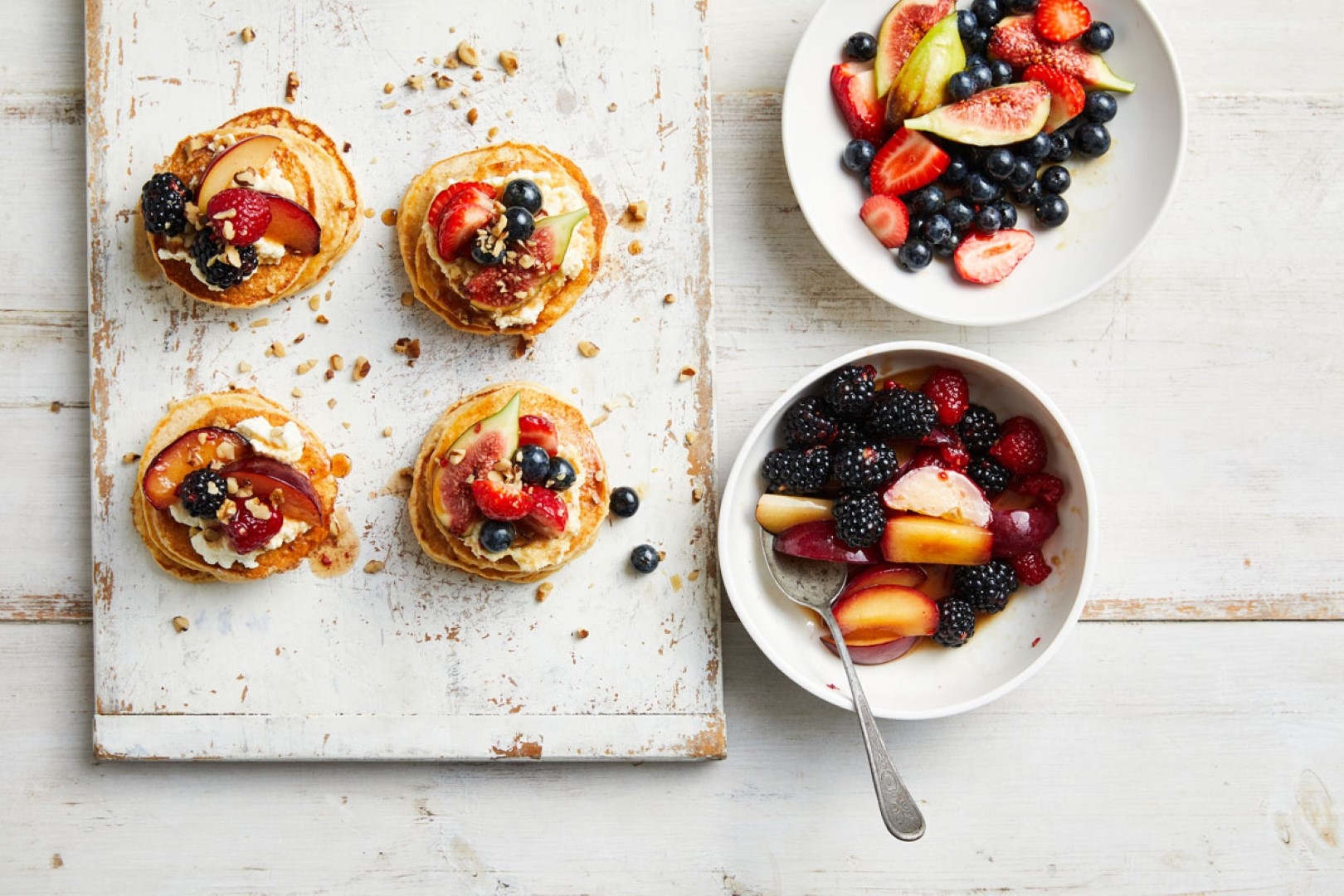
Five ways to lower cholesterol
Blog: 11 November 2025
Eat your way to lower your cholesterol with delicious meal ideas from breakfast to dessert
Understanding cholesterol
Did you know that cholesterol naturally occurs in animal-based foods, like red meat, poultry, eggs, seafood and dairy? However, dietary cholesterol only plays a small role in increasing our bodies’ cholesterol levels. Other nutrients, such as fat and fibre, can play a bigger role in these levels – we’ll get to this later.
But first, it’s important to understand the two main types of cholesterol in the body:
- High-density lipoprotein (HDL-cholesterol), often called the “good” cholesterol, helps remove other forms of cholesterol from your bloodstream and prevents build-up in the arteries.
- Low-density lipoprotein (LDL-cholesterol) – known as the “bad” cholesterol contributes to cholesterol build-up and blockages in the arteries.
Fat and cholesterol
Foods that are high in saturated or trans-fats can raise levels of unhealthy, LDL-cholesterol, increasing the risk of heart disease. This includes foods like butter, coconut oil, palm oil, fatty cuts of meats and poultry skin, processed meats like salami and bacon, cream, cheese, cakes, pastries, many processed foods, deep-fried and takeaway foods.
On the other hand, healthier unsaturated fats (mono- or polyunsaturated fats) can help lower LDL-cholesterol, and increase the ‘good’ HDL-cholesterol, lowering your risk of heart disease.
Fibre and cholesterol
Soluble fibre is another dietary hero. It binds to cholesterol in the digestive tract and helps remove it from the body. Adults are recommended to have 25-30 grams of fibre a day.
Plant sterols and cholesterol
Plant sterols are cholesterol-like substances that can lower LDL cholesterol levels. They are found naturally in foods such as fruits, vegetables, nuts and cereals but only in small amounts.
To help meet the recommended 2-3 grams of plant sterols per day, look for foods which have plant sterols added including milk, yoghurt, breakfast cereals, and special varieties of margarine.
Everyday foods for lower cholesterol
By including more fibre-rich foods and healthy fats in your meals, you can support your heart health and enjoy delicious, satisfying food every day. Here are five tasty options to help keep your cholesterol in check.
1. Oats
Oats can provide a healthy way to start your day! They’re not only filling, but also full of soluble fibre. A serve of oats provide up to four grams of fibre, and you can boost this even more by adding fruit and nuts.
Check out our Grab and Go Overnight Oats recipe – it’s packed with fibre and heart-healthy fats from nuts and seeds.
2. Legumes
Legumes (or pulses) like chickpeas, lentils and baked beans are another great source of soluble fibre, as well as plant-based protein.
For an easy lunch, try our Lentil, Carrot and Beetroot Salad or delicious Taco Chicken Bowl.
Add a nutritious twist to family favourite dinners with our Beef & Lentil Bolognese recipe.
3. Fish and seafood
Fish is a rich source of omega-3 fatty acids, a type of polyunsaturated fat that supports heart health and helps lower LDL-cholesterol. Including fish in your meals a few times a week is a great way to boost these healthy fats and add variety.
Try our Fish Tacos with Tomato Jalapeno Salsa, or our take on the classic Tuna Mornay Bake.
4. Fruit
Fruits like apples, berries and citrus fruits contain a type of soluble fibre called pectin, that supports cholesterol management.
Enjoy them as a simple snack, or in recipes like our Mighty Mango Smoothie, or delicious Summer Fruits Gingerbread Crumble.
5. Nuts and seeds
Nuts and seeds are a rich source of cholesterol-lowering unsaturated fats. A small handful as a snack between larger meals can keep you feeling fuller for longer. and regular consumption is linked to lower levels of LDL cholesterol.
Try adding them to home-baked treats like our Banana Trail Mix Bars or Carrot Cake Muffins.
Other key tips
- Use healthier oils: Replace saturated fats like butter or other animal-based fats with oils like olive, canola or sunflower oil.
- Include a variety of healthy proteins: As well as legumes, fish & seafood, lean cuts of meat and reduced fat dairy products can also help keep your cholesterol down and your heart health up! Just remember to limit lean red meat to 1-3 times a week.
You might also be interested in...

6 delicious and healthy soups
These healthy soup recipes are packed full of goodness but they also pack a punch when it comes to flavour.

Sorting fact from fiction – seed oils and coconut oil
Coconut oil or seed oils? Learn what the Heart Foundation says about their impact on cholesterol, heart health, and which oils are best for cooking.

Fish tacos with tomato and jalapeno salsa
4 serves
20 m
10 m
Last updated11 November 2025